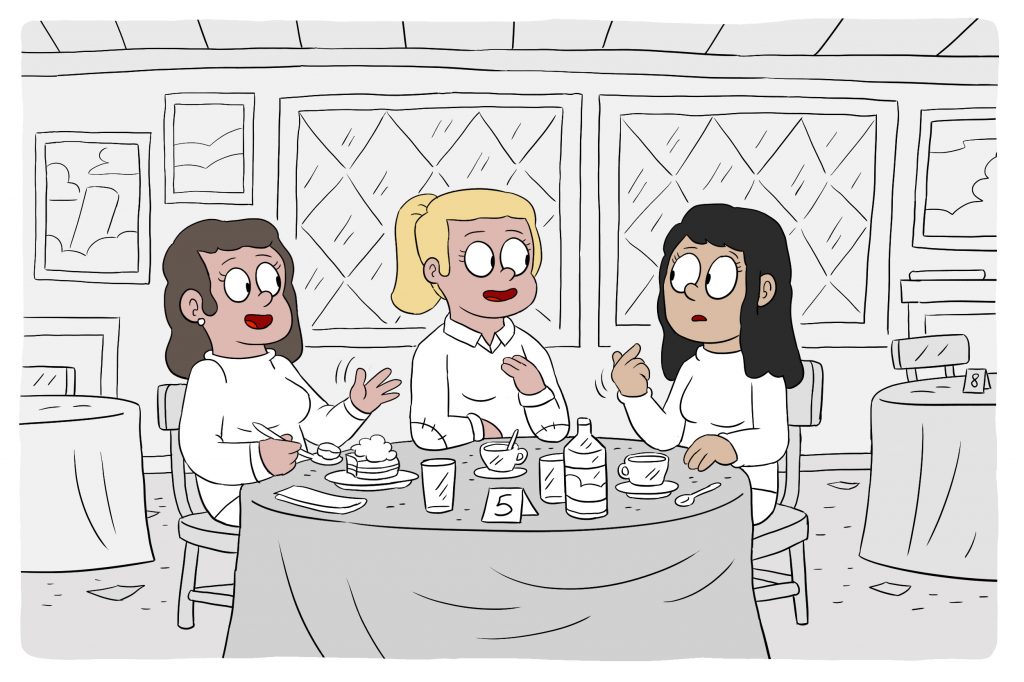
Celine, Imke and Lisa went to lunch together. As always, it goes for relationships. The three have a large friend group and most of the girls have a boyfriend, Ineke a girlfriend. Most also live together, but no one is married yet. The girlfriends should not think about this yet. Get used to each other first. Turkish Celine and her boyfriend are not living together yet. Imke and Lisa are curious and ask her when she will start living together. Celine tells them that it won’t happen for a long time, not until they are married.
Imke and Lisa are surprised: Celine and her boyfriend have been in a relationship for three years. Then it’s about time they moved in together, right? Then you get to know each other well before you get married. That’s what we do. That way we’ll know for sure later that it’s a good fit.
Celine feels like she has to explain herself. “My parents don’t know yet that I’m in a relationship with my boyfriend. I only tell them when he asks for my hand from my parents. So when we get engaged. Living together before we get married, I really may not.”
“I could never keep something like that a secret from my parents,” Imke says.
“And I don’t have to keep it a secret from my parents!” laughs Lisa.
Celine is very happy with her friends and loves them, but sometimes she feels alone when it comes to relationships.
Where is the connection?
Relationships are often very different in the Netherlands compared to other cultures. Here it is very normal if a couple moves in together, even to test the relationship. Or there are economic reasons to do so. But culture is definitely not a barrier.
In many cultures it is very sensitive. Sometimes the parents choose someone for their daughter. If the daughter chooses someone herself, the person must also be approved by the parents. After that, it is normal to get engaged soon after. Living together before marriage is, for example in Indian and in Turkish culture, not natural. It does happen, but then it is often at the expense of the relationship with the rest of the family.
Again, you can see the impact of the strong I culture and the we culture. In the we culture, the family plays a much larger role in the lives of adult children. It’s not just two children who belong together, but two families. I see that with in my own family in which we have followers of Surinamese descent. Those families belong and I must say that enjoys the warmth that our children and also we as parents get from those families.
That’s a beautiful merging of cultures. Celine still has a way to go in that. Just like Lisa and Imke, for that matter. Because what stands out most in this story is the way they communicate. The feelings of Celine, which she barely expresses, and the rather direct remarks of Imke and Lisa. Quite a few value judgments go across the table. A missed opportunity for the girlfriends.
Celine chooses to explain how things go at her house. That’s always a good thing to do as long as the girlfriends respect how things are at her place. And vice versa, of course. Love, sex, cohabitation and marriage are sensitive and emotional topics on which people can have strong opinions. Lisa and Imke’s comments are judgmental. That is unfortunate. They might be better off saying: it seems difficult to keep it a secret.
A golden rule: You don’t have to agree on everything.
Want to read more about culture dimensions?
Important to know:
This anecdote is based on stories shared with us. Connect2Us strives to highlight the dilemma from both sides and not to label people or suggest that one or the other should behave differently. We see in our daily intercultural work that awareness by those involved is enough to move toward each other without pretending to be very different. Connect2Us aims to help readers recognize and avoid prejudice. Read about prejudice, discrimination and racism here.

